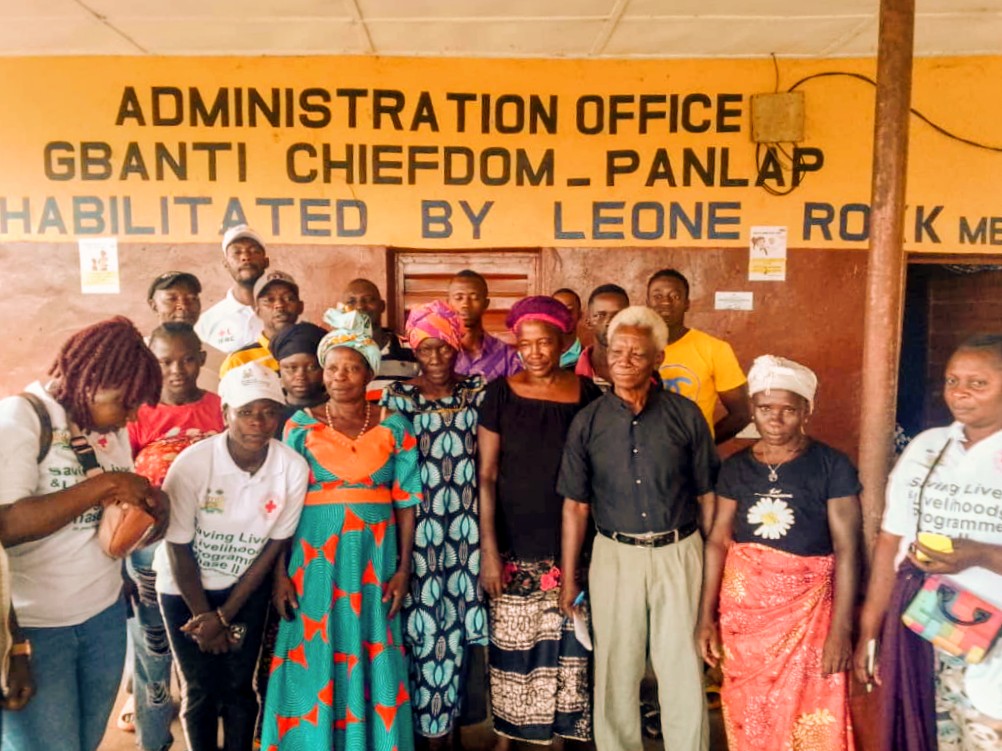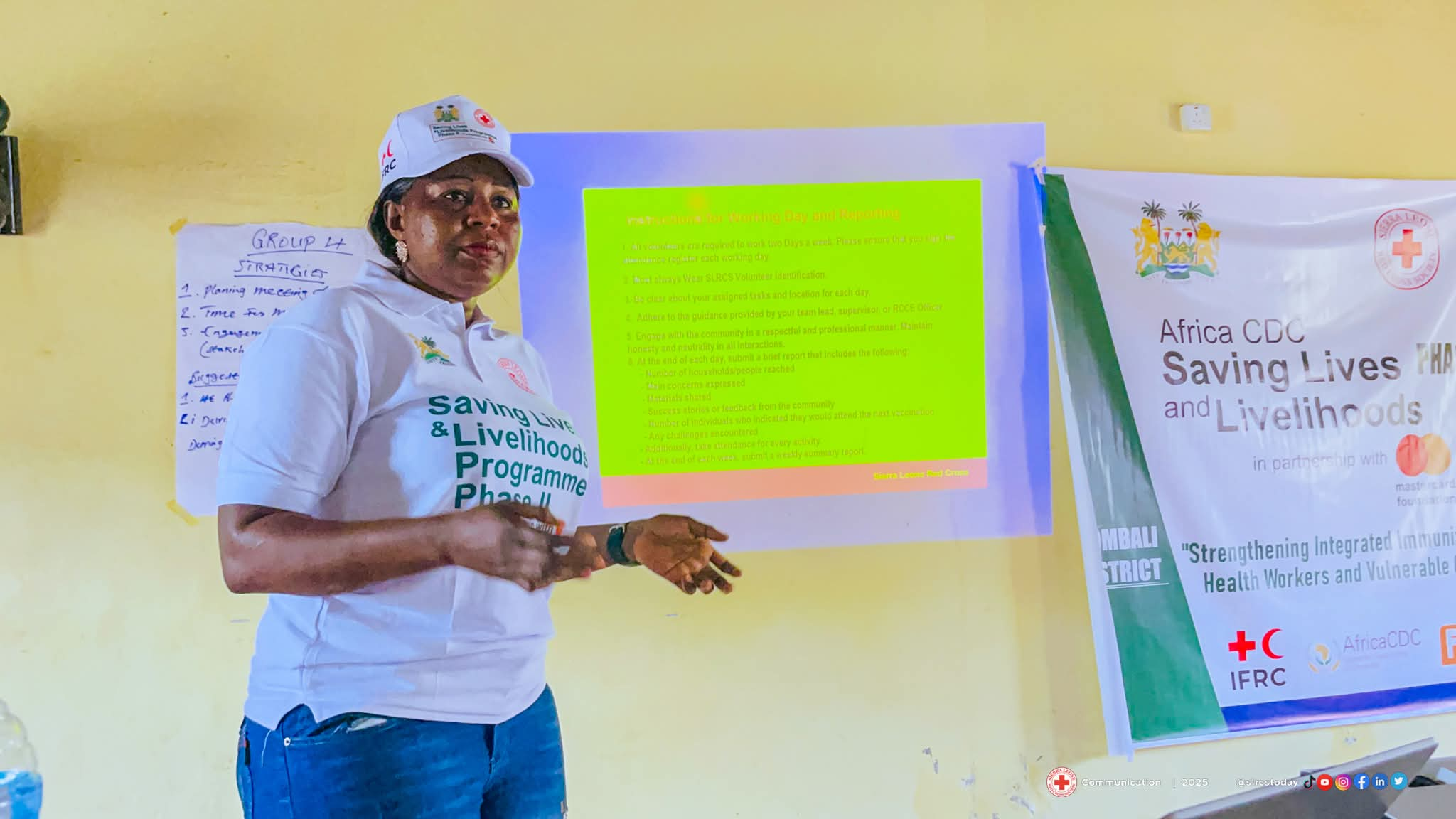By: Alusine Rehme Wilson

Communities in Bombali District are applauding the Sierra Leone Red Cross Society (SLRCS) for its ongoing Saving Lives and Livelihoods (SLL) pilot project, which is already showing positive results in improving child health and vaccine uptake just four months after its launch.
The SLL initiative, which began in April this year, is being rolled out in ten districts across the country. In Bombali, it targets hard-to-reach communities like Masongbo and Panlap, where it focuses on strengthening routine immunization, building trust in health systems, and supporting lactating mothers and caregivers.
Local residents say the program is beginning to transform their communities and helping to rebuild trust in health.
During a recent community dialogue session, Bombali Red Cross Branch Manager, Mohamed Chernor Sesay, emphasized that the project is helping bridge the gap between clinics and families who had previously been hesitant to vaccinate their children.
He said: “Many parents had lost confidence in the health system,” he explained. “But now, with the support of our volunteers and community health workers, that trust is returning.”
He further noted that the role of community health workers (CHWs) has been central to the program’s early success.
For Mariatu Esther Tamba, Project Manager for the SLL Program Phase 2, explained that the project is part of a broader nationwide effort supported by the Center for Disease Control (CDC), the Vaccine Alliance, to improve immunization coverage across Sierra Leone.

She said: “Bombali is playing a key role,” she told reporters in Makeni. “We are here to listen to the community and learn what’s working. So far, the stories from Masongbo and Panlap have been inspiring.”
She went on to praiselocal leaders and residents for embracing the program and helping to spread accurate information about the importance of child immunization.
Musa Alie, Chiefdom Health Officer in Masongbo, expressed appreciation for the Red Cross’ efforts to bring immunization services closer to remote villages. “The difference is clear,” he said. “We’re now reaching families we couldn’t before.”
Gibrilla Kamara, Chairman of the Facility Management Committee, added that clinic attendance has increased dramatically since the program began.
In Panlap, Foday Turay, the local CHO, welcomed the initiative but called for more support for health workers and incentive packages for breastfeeding mothers to encourage full participation in immunization schedules.
Community members also shared their personal experiences. Madam Susan Koroma, a mother from Panlap, said many women in her area were once unsure about vaccines, but are now seeing the benefits firsthand. “Our children are not falling sick as often as before,” she said. “We now understand why immunization is important.”
Reverend Christopher A. Turay described the program as a blessing. “They trained people to go door-to-door and talk to mothers,” he said. “Because of that, we’ve seen fewer child deaths. As a religious leader, I am thankful, we don’t want to bury our children.”
Ibrahim Ramadan, Youth Chairman of Makarie Chiefdom, highlighted the stronger cooperation between health workers and young people in spreading health messages. Bankole Fofanah, a Chiefdom Supervisor, added that the program's sensitization efforts are already reducing default rates and helping mothers take malaria prevention seriously.
Though still in its pilot phase, the SLL project is showing clear signs of success in Bombali. With health workers and volunteers leading the charge, and communities responding positively, the Red Cross hopes the momentum continues, and expands to more districts.
The project is more than a health campaign. For the people of Bombali, it's a symbol of renewed trust, improved livelihoods, and a hopeful future for their children.
Comments
Post a Comment